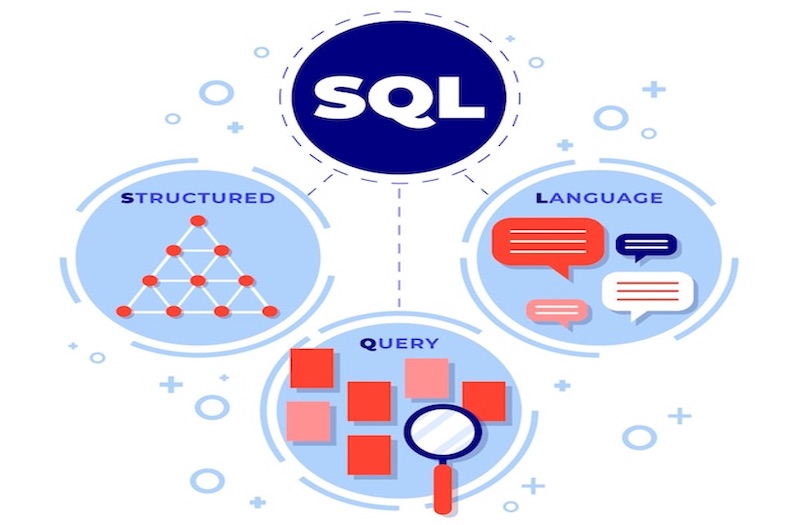7 Reasons SQL Is the Need-to-Know Skill for Data Analysts
![[node:title]](/sites/default/files/styles/large/public/man-using-computer-data-analist-code-sql.jpeg?itok=95UXGGPH)
As data analysts, there are different skills that you need to know and tools that you should be used to using for an easier time at your workplace.
Aside from general statistics, mathematics, and linear algebra, adequate knowledge of how to use tools and skills like Structured Query Language (SQL) are essential in the industry.
To help you understand why that is so, here are seven reasons why SQL is an essential skill you need to know as a data analyst.
1. SQL Provides a Gateway to Programming
SQL, or Structured Query Language, is a powerful tool that provides data analysts with a gateway to programming. With SQL, data analysts can easily access, manipulate, and analyze data from various sources. It is an easy-to-learn language that lets them quickly write queries and gain insights from large datasets.
Data analysts widely use SQL because of its versatility and speed. It enables them to quickly retrieve data from multiple databases and tables, which makes it ideal for complex queries.
Furthermore, it helps them create reports and dashboards with ease. With SQL, they can quickly gain insights into their datasets without learning a more complex programming language like Java or Python.
As a data analyst, it is a good idea to take the time to learn about programming eventually. However, since it is quite a learning curve, SQL can be a great start in the programming world for some people.
For data analysts, most of the time, coding or programming isn’t necessary for their jobs, but it also depends on your work. However, that doesn’t mean that you can’t benefit from learning programming.
Since SQL primarily deals with data management, it makes sense that you start things off with learning SQL. That way, you are better at your job while getting a better understanding of programming.

2. A Useful Tool for Data Analytics
Data analytics is analyzing data to gain insights and make informed decisions. It involves collecting, cleaning, organizing, transforming, and visualizing data to uncover patterns and trends. You can use it for various purposes, such as predicting customer behavior, improving operational efficiency, or even finding fraud.
By leveraging the power of data analytics, organizations can gain valuable insights into their customers, products, and operations that can help them make better decisions and increase profitability.
With SQL, you can easily query vast amounts of data quickly and accurately. This ability makes it an ideal tool for data analysts to analyze large datasets and gain meaningful insights.
SQL can help data analysts in many ways. It allows them to filter out irrelevant information and focus on the critical aspects of their analysis. It also helps them identify patterns in the data that they wouldn’t have detected otherwise.
Furthermore, it allows them to quickly run queries on large datasets without manually going through each record individually. All these features make SQL a handy tool for data analytics.
As a data analyst, anything that can help you with the tasks involved in data analytics will be worth investing time and effort in. Therefore, given the tasks that SQL makes easier in data analytics, you should take the time to learn it more.
3. Knowledge About Probability and statistics
As data analysts, it is essential to have a good understanding of probability and statistics. Probability and statistics provide valuable insights into the data that can help you make better decisions. With this knowledge, you can identify patterns in the data and draw meaningful conclusions from them.
A good understanding of probability and statistics also helps us understand our decisions’ implications. Using this knowledge to predict future events or trends based on past observations can benefit any business or organization. By learning more about probability and statistics, data analysts can better understand their field and become more effective in their roles.
SQL’s convenient ability to analyze large datasets more quickly and accurately by allowing them to query data from multiple sources in one go helps you get the correct statistics. It also can identify patterns and trends in the data, which can help them better understand fundamental probability and statistics concepts. It’s part of making informed decisions for a business which is the purpose of many data analysts.
Once you have access to the correct statistics and probabilities, you can do your job as a data analyst more efficiently. You don’t have to spend the majority of the time gathering the data, and you can focus on more crucial parts: analyzing and getting conclusions from them.
4. Data Architects and Administrators
Data architects and administrators are essential in any organization that deals with large amounts of data. They are responsible for designing and managing the databases, which can only be challenging with the right skills.
Learning SQL is essential for both data architects and administrators as it allows them to query, analyze, and manipulate the data stored in their databases. With SQL, they can quickly identify patterns in their data, create reports, and make changes to the structure of their databases.
Learning SQL is also beneficial for those looking to become a data architect or administrator as it gives them an edge over other candidates who may need to gain this skill set. If you’re a data analyst interested in growing deeper into this career, SQL is worthwhile learning. It will be helpful to you both at the beginning of your career and when you’re growing further into it.
5. Being an Expert in Data Visualization
Data visualization enables users to quickly identify relationships between variables and spot anomalies or outliers in the data. It also allows them to explore various scenarios and predict outcomes, which can help them make better decisions.
By leveraging the power of SQL, you can easily create visualizations that make it easier to understand complex datasets. Instead of your eyes glazing over as you see spreadsheets of data, visualizing it can make it easier to digest and, therefore, easier to analyze.
6. SQL is Considered Industry Standard
No matter what kind of industry you’re a part of, as long as you work in data and management of data, you’ll encounter SQL often.
That’s because it’s become the industry standard nowadays. Therefore, you can simplify your life and boost your career in data analysis simply by learning more about SQL.
7. Practicing Critical Thinking
After data gathering, the data analyst’s job involves critical thinking so that you can make the most out of the information presented to you.
With SQL, you have an easier time with data management and gathering, so you can focus on the higher-thinking or high-effort tasks of a data analyst and practice your critical thinking skills, which are crucial for a data analyst.
In Conclusion
Learning SQL makes your job as a data analyst easier and helps you better present and understands the data you manage. This makes you a better data analyst.
It is, therefore, a no-brainer really that as a data analyst, or someone aspiring to become a data analyst, you should take the time to learn SQL at some point.










![Workers Are Neglecting a Major Workplace Need - Office Hygiene [Study]](/sites/default/files/styles/video_thumbnail_bottom/public/office-workers-neglecting-major-workplace-need-amid-covid.jpg?itok=xpjAcQam)











